News Archive
Research
-

As the newest member of the USC School of Social Work faculty, retired colonel Carl Castro is looking forward to tackling the toughest problems confronting military service members and veterans.
“The most pressing challenges the military has right now from an active-duty perspective is this high suicide rate in the Army, sexual assault issues facing all the services, and facilitating the transition from a wartime military to a peacetime military,” he said. “That dovetails into issues facing veterans and service members entering civilian life.”
-
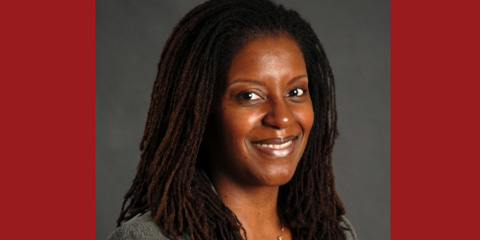
Much like the rest of the United States, Los Angeles is growing older. Its older adult population is projected to double by 2030. Compounding the problem is a looming shortage of geriatric social workers the National Institute on Aging estimates will need to increase 50 percent by 2020 to keep pace. Yet, the country’s accredited schools and programs of social work often struggle to recruit and graduate enough students to handle the demand.
-

Retired Gen. David Petraeus officially became “Professor Petraeus” to USC students last week — lecturing on energy and the U.S. economy, meeting with student veterans and cheering the football team to a win in the Los Angeles Memorial Coliseum.
-

The USC Price School of Public Policy held a daylong conference Oct. 8 to discuss the needs of returning veterans, especially with regard to employment and housing.
The conference, “Work and Home: Addressing the Urgent Needs of Returning Veterans,” featured a number of high-profile speakers, including opening remarks by Gen. David Petraeus, USC Judge Widney Professor, and affiliated faculty with the USC Center for Innovation and Research on Veterans & Military Families (CIR) at the USC School of Social Work, and a keynote address by Los Angeles Mayor Eric Garcetti.
-
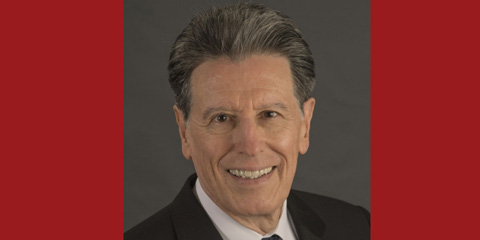
William Vega, provost professor and executive director of the Edward R. Roybal Institute on Aging at the USC School of Social Work, has been recognized with two honors for his decades-long career as one of the nation’s leading experts on health disparities affecting aging ethnic minority populations.
-

Hortensia Amaro, dean's professor of social work and preventive medicine and USC associate vice provost of community research initiatives, has been invited to serve on the Institute of Medicine’s (IOM) Committee on the Assessment of Resiliency and Prevention Programs for Mental and Behavioral Health in Service Members and Their Families.
-
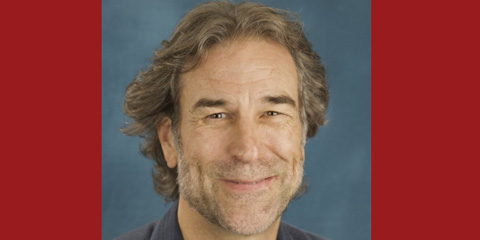
Not only do individuals with serious mental illness die an average of 25 years earlier than the general population, but those deaths are also often attributed to preventable medical conditions.
Improving how those individuals interact with the complex and often uncoordinated health care system is a key component of a new intervention being tested by John Brekke, the Frances G. Larson Professor of Social Work Research at the USC School of Social Work.
-
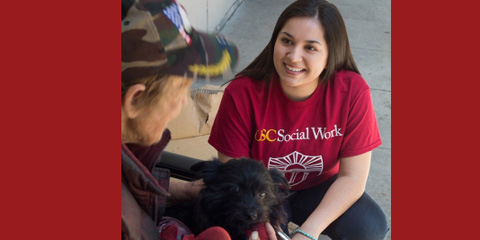
The USC School of Social Work has kick-started a national Grand Challenges initiative to identify and highlight the most serious societal ills that social work can – and should – address.
Major challenges exist: fragmented systems of health and mental health care, problems of social stigma and oppression, a need to reform the child welfare and foster care sector. Where the social fabric is fraying or worn, social work researchers and practitioners are striving to address issues that plague society.
-
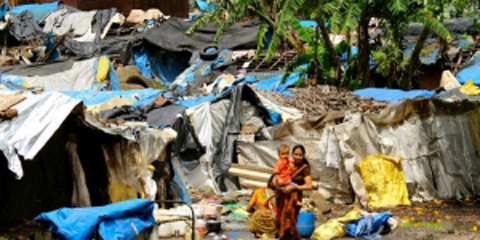
One of the most impactful global immersion programs the USC School of Social Work holds is in India, where a group of Master of Social Work students and faculty traveled over the summer to visit, observe and participate in community development projects in Mumbai, Pune and Jawhar. They saw first-hand how extreme poverty forced many people to live in slums and dig through mountains of trash to find recyclables to exchange for money. They also witnessed how a social worker with a background in business started a micro-finance nonprofit organization to empower women.
-
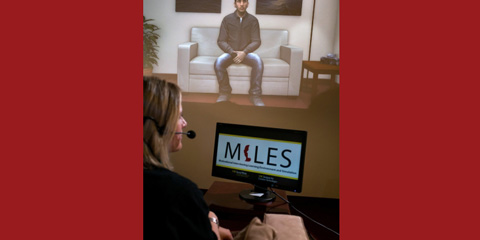
Mike Baker sits on a therapist’s couch—in blue jeans and a buttoned-down shirt, nervously clutching his hands.
Baker was deployed to Afghanistan with the National Guard a year ago and is now having trouble at home. His wife made him get help, but talking is the last thing on Baker’s mind.
“I know this is your job to ask me a bunch of questions, but let me ask you something,” he said. “Did you ever serve?”